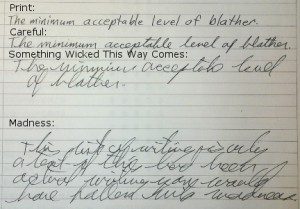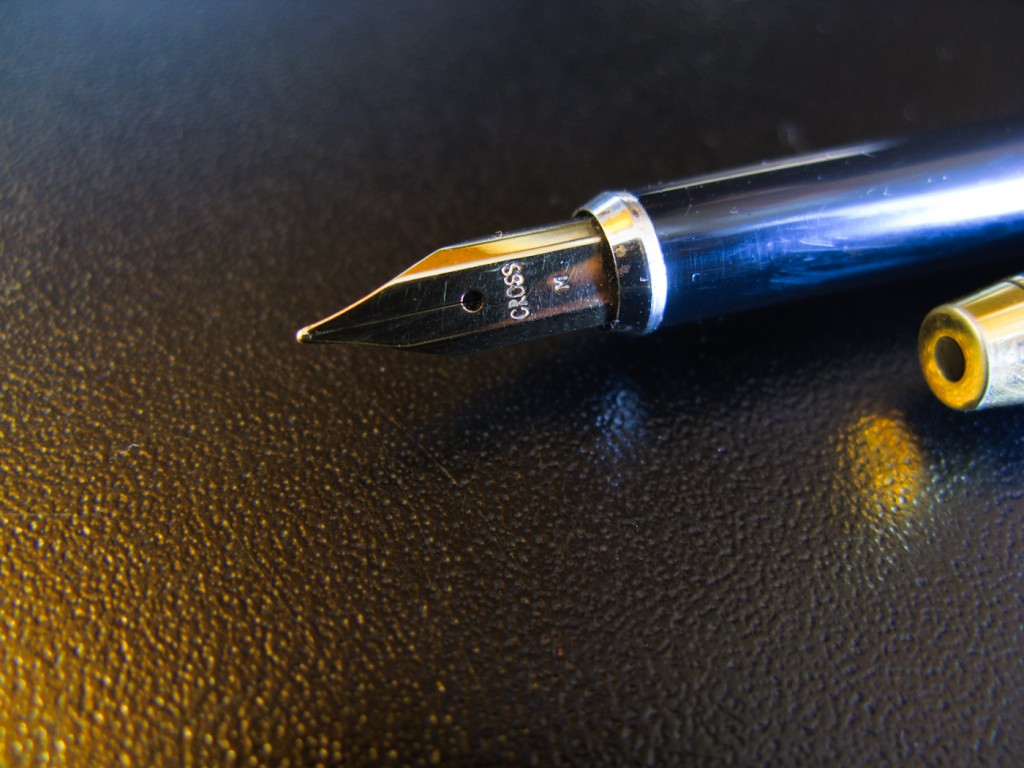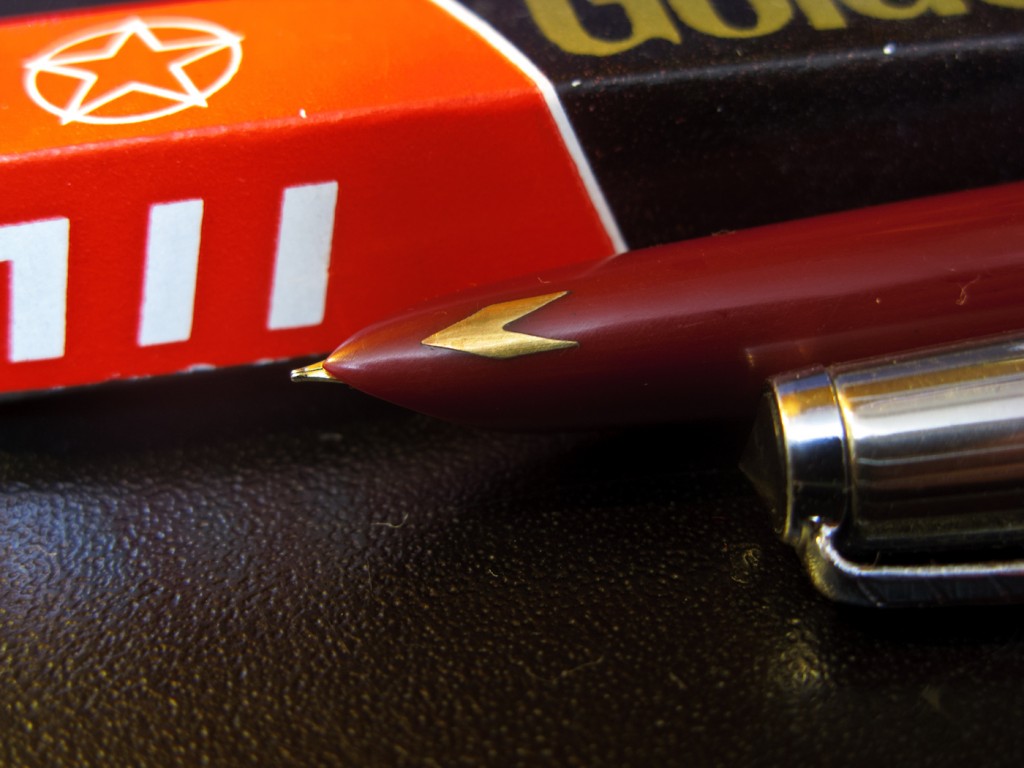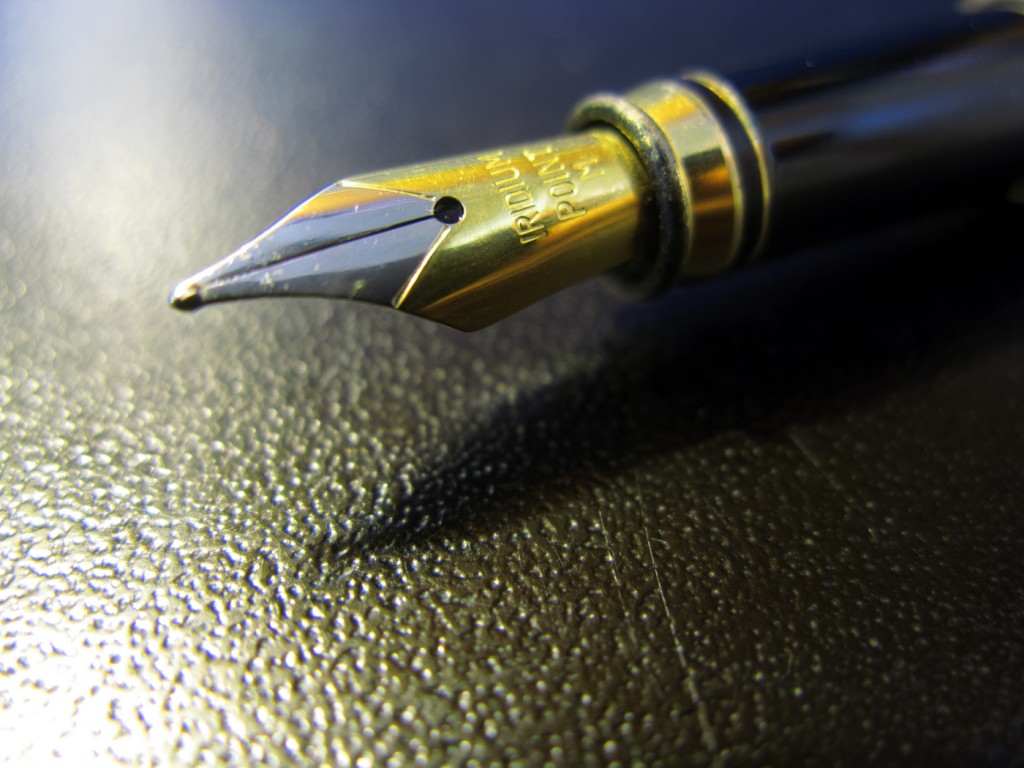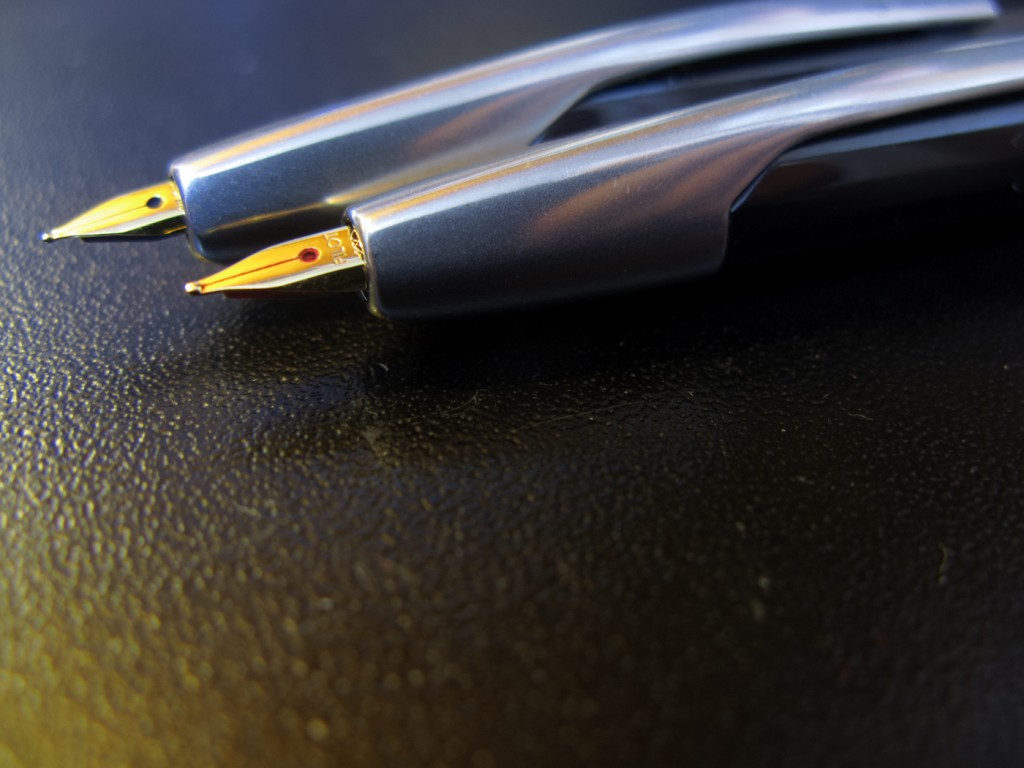I’ve said before that Japan is the Mecca of stationery and things to write with. For part of today, I got the chance to head down to Tokyo to visit Itoya, the central temple of that Mecca. I was mildly disappointed by the trip.
I’ve also mentioned my affinity for places that are both grandiose and kind of creepy. When I first moved to Tokyo, Itoya met both those criteria. Behind it’s signature red paper clip sign was seven floors (and one basement level) of office supplies fountain pens, ball-point pens, paper, and every office gadget imaginable housed in a thin building that looked kind of worn out and felt vaguely dangerous, as if you’d had to go to a store in the bad part of town (instead of just a block from what used to be the most expensive property on Earth). It had low doors and I had to pay attention as I moved from floor to floor. I was immediately smitten by it all and started spending. If I had nickle for every dime I spent there, well, I’d have someone else writing these posts whilst I studied mathematics.
Part of the fun is that, because the Japanese also have an unhealthy interest in office supplies, Japanese stationers have pens and other items that never make it to the West. Some of the items aren’t worth sending, but the ones that are seem subject to the whims of the manufacturers who may decide that the pen or pencil won’t sell well overseas. When you house it in a creepy building it’s even better.
Unfortunately, the creepiness is gone as the Itoya main building is now a construction site. The basic pens and paper have been moved to a six story building around the corner that lacks the red paper clip any character.
Just down the alley is K. Itoya,which used to be a satellite of the main store, and now houses the fountain pens and art supplies. It also lacks any character, but I like the fountain pen sign.
I’m also convinced that the new stores have less stuff than before. Part of the charm of old Itoya was that you could roam around for an hour discovering stuff that you didn’t know existed but suddenly couldn’t live without. The new store is too clean and compact. It’s like replacing the XYZ Shopping Mall with a large convenience store but still calling it the XYZ Shopping Mall.
I hope the new building gets its creepiness and sense of danger back. If it doesn’t, I just hope it has more stuff.



